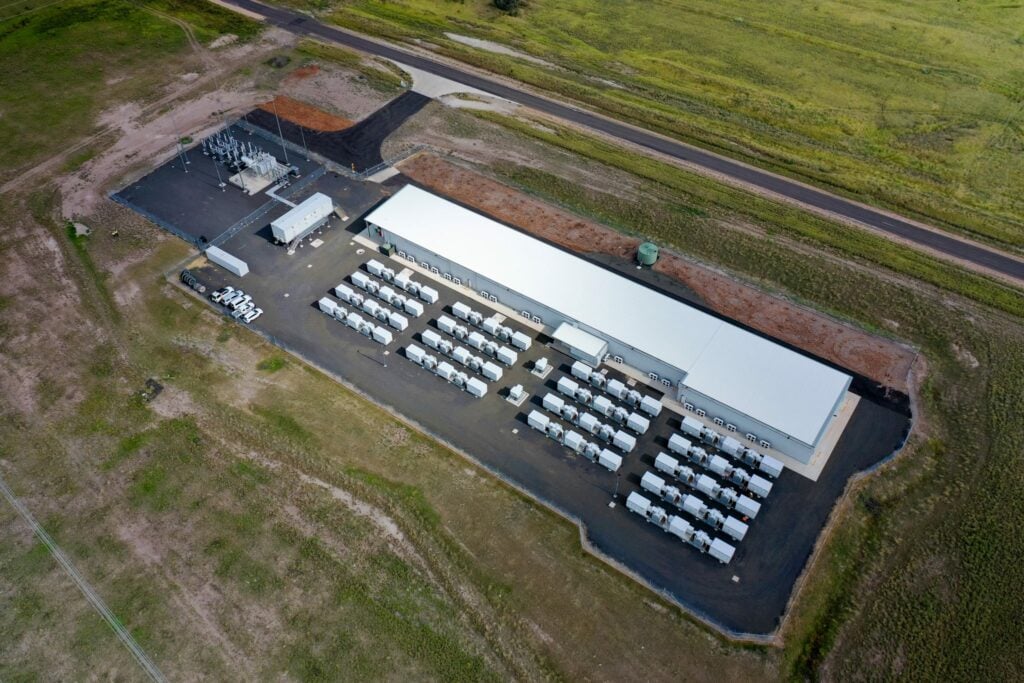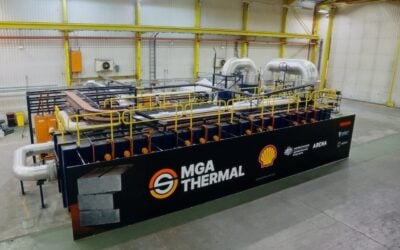
Australia needs its government’s support for low-carbon energy to extend to a policy target for energy storage, a coalition of clean energy advocacy and trade association groups has said.
On Monday, 21 November, organisations including the national Climate Council non-profit climate communications groups will be at the Australian Parliament, making their voices heard on the subject.
Climate Council published a joint statement from the groups today, arguing that Australia will be unable to meets its decarbonisation and renewable energy policy goals without energy storage being invested in at faster pace than it is today.
The federal Labor Party government of Prime Minister Anthony Albanese has been largely praised by clean energy and climate groups for its proactive stance on energy and climate issues since coming to power this year.
Try Premium for just $1
- Full premium access for the first month at only $1
- Converts to an annual rate after 30 days unless cancelled
- Cancel anytime during the trial period
Premium Benefits
- Expert industry analysis and interviews
- Digital access to PV Tech Power journal
- Exclusive event discounts
Or get the full Premium subscription right away
Or continue reading this article for free
It recently announced a budget which committed AU$25 billion (US$16.78 billion) over the next four years to clean energy, having set a revised 82% renewable energy by 2030 benchmark.
However, calls for a deployment target for energy storage have yet to be answered, and the Climate Council pointed out that hitting that end-of-decade target will require about 18GW of firming capacity.
That need is only likely to grow, with the Australian Energy Market Operator (AEMO) saying in June that by 2050, there will be a need for 46GW/640GWh of energy storage in the National Electricity Market (NEM).
While Australia’s energy storage market is growing rapidly, it isn’t growing rapidly enough to meet those medium and long-term goals.
Proponents of a policy target argue that that is largely a function of the lack of investment certainty battery storage presents – battery assets are proving to be very lucrative for ancillary services and increasingly for energy trading, but revenue streams are entirely merchant and not backed with long-term contracts.
Climate Council’s coalition also includes national trade association Smart Energy Council, the Clean Energy Investor Group, The Advanced Materials Battery Council and community-based solar advocacy group Solar Citizens.
The call echoes a stance taken by another national clean energy trade group, the Clean Energy Council.
In a June interview with this site, Dr Bruce Mountain, an energy economist at the Victoria Energy Policy Centre discussed why a storage target is needed, and how it could work along the lines of Australia’s Renewable Energy Target (RET) policies, which have largely been successful in bringing online large-scale solar PV and wind.
Climate Council also said today that the Renewable Energy Storage Target its coalition is advocating would work along the same lines as the RET.
At state level, Victoria’s government, currently seeking re-election, has promised to introduce a 6.3GW target for energy storage deployment by 2035. That would be a bigger target even than New York’s 6GW goal, the highest target among US states, albeit New York has five fewer years to reach it than Victoria would.
Elsewhere the state government of Queensland recently announced a 70% by 2032 renewables target and promised to soon publish a specific Energy Storage Strategy, although a target for storage has not yet been mentioned.
Energy-Storage.news’ publisher Solar Media will host the 1st Energy Storage Summit Asia, 11-12 July 2023 in Singapore. The event will help give clarity on this nascent, yet quickly growing market, bringing together a community of credible independent generators, policymakers, banks, funds, off-takers and technology providers. For more information, go to the website.





